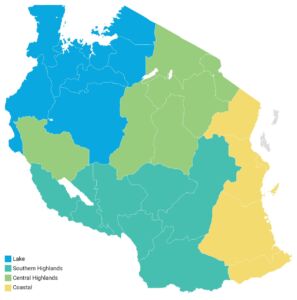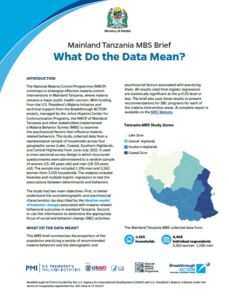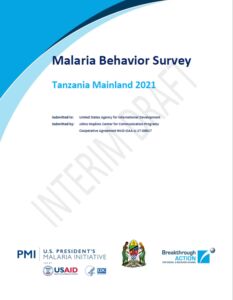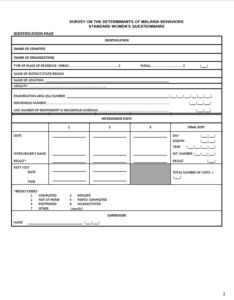Country Results
The Tanzania Malaria Behavior Survey was fielded in June and July 2021 in conjunction with the low transmission Malaria Behavior Survey in Zanzibar. The survey was carried out by the Breakthrough ACTION project in collaboration with the National Malaria Control Program, the U.S. President’s Malaria Initiative, and several other local organizations.
Study Zones

Survey regions and respondents
Key behaviors at a glance
43%
of children under five with fever had prompt and appropriate care sought for them the same or the next day of fever onset
73%
of respondents used an ITN every night of the week before the survey
47%


